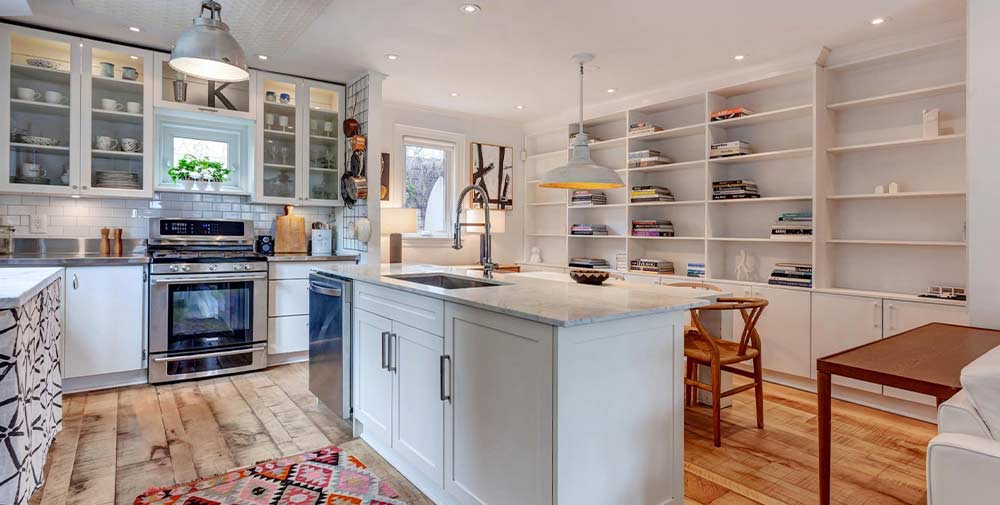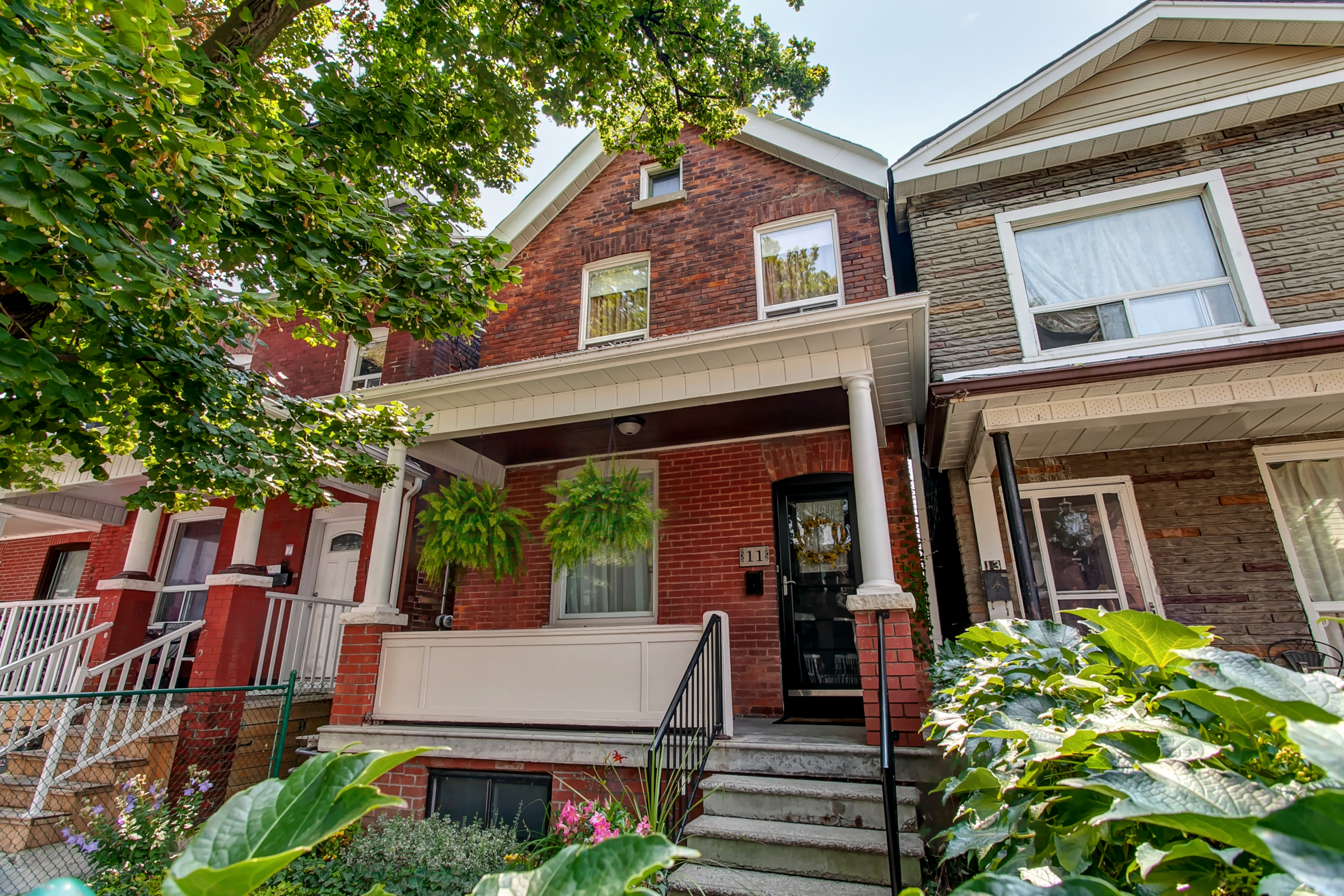Maybe you’re relocating for work. Perhaps you’re moving to take care of a family member. Whatever your reason for leaving Toronto, you’ll likely have some major decisions to make before you go. If you’re a homeowner, figuring out what to do with your house or condo may be the biggest.
For many, selling is the obvious choice. An efficient home sale can provide a tidy profit—and allow you to put the hassle of maintaining your former living space behind you. While these benefits are certainly attractive, some people prefer to go a different route: renting out their properties for additional income.
If you’re moving outside the city and haven’t decided what to do with your home yet, here are a few questions to help you decide…
1) Does it make financial sense?
One of the biggest reasons homeowners decide against selling their homes? They want to maintain a foothold in the city’s real estate market. Toronto properties often appreciate significantly in value, and renting them out can generate some impressive monthly income. That said, it’s important to do the math before making a decision.
If you’re thinking of going the rental route, be sure to assess the financial viability of doing so. Determine how much you could reasonably charge in rent, as well as the ongoing monthly expenses associated with maintaining your home.
Now, look at your overall budget—including how much you’ll need to live comfortably when you move. When all is said and done, you want to make some extra income from renting out your space. But at the very least, you should be able to cover your carrying costs (your mortgage payments, property taxes, etc.)
2) Are you prepared to be a landlord?
It goes without saying that being a landlord comes with some pretty big responsibilities. First and foremost, it will be your duty to ensure that your home is in good general repair and meets provincial and city safety standards.
One of the first things you’ll want to do is review the Residential Tenancies Act, which lays out your obligations to your tenants. When it comes time to budget, remember that you’ll need to keep the HVAC system and all major appliances in good working order. Your exterior space will need to be landscaped, and your sidewalks must be shovelled and de-iced in the winter.
Living outside of the city means you’ll be dealing with these issues remotely, which requires some extra planning. In addition to collecting rent cheques and making sure your bills are paid, a professional property manager can take care of any maintenance issues that pop up.
3) How would market changes affect you?
When you’re deciding whether to sell or rent out your home, think about the local market. Is your property located in an up-and-coming neighbourhood? Are property values on the rise? If the answer to these questions is “yes,” you may be able to charge more in rent than you otherwise would—and sell for a higher profit later on.
On the flip side, will you have the funds available to deal with a potential market correction? If rents go down in the city, can you still afford to carry your property? What if it sits vacant for several months? If these scenarios would put you in financial hot water, you should think long and hard about whether it makes sense to rent out your home.
4) When will you be returning?
Of course, holding onto a property isn’t always about financial gain. Most people become emotionally attached to their living spaces. Sound familiar? If so, you may have plans to one day move back into the home you love. While doing so is a possibility, it’s important to look ahead at how this situation might play out.
When a tenant’s lease ends, they’ll start paying month-to-month. While you can give them notice if and when you plan to move back into your property, be aware that you can’t turn around and sell it—or lease it to someone new. If you do so within a year, you could be seriously penalized.
What happens if you decide to put your home on the market in the future—and you still have a renter? Purchasing a tenanted property is less-than-ideal for many buyers, so you’ll likely wind up selling at a discount. The bottom line? If you’re planning to rent out a property now and occupy it again in the future, be aware of all of the potential consequences associated with doing so.
5) Can you deal with the wear and tear?
The truth is, renters aren’t always gentle on their temporary homes. If you’re expecting a tenant to treat your property with the same care that you would—well, let’s just say that’s probably not going to happen.
The more tenants you have, the greater your wear and tear is likely to be. This is certainly worth considering—especially if you’re thinking of leaving your furniture behind. Generally speaking, tenants only take furnished spaces for short periods of time. As a result, you may experience higher turnover (which can lead to more potential damage and longer vacancies). Fortunately, there are property management companies that specialize in short-term, furnished rentals.
While it’s not exactly a wear-and-tear issue, it’s also worth noting that finding the right buyer can be more difficult when you have a tenant. You won’t be able to make use of staging services, your home may not show as well, and access to your property will likely be impacted during showing periods.
6) Are you okay with the taxes?
One of the biggest costs associated with owning property is the taxes. If you’re planning on renting out your living space, there are a few things you should know about how you’ll be taxed.
The good news is, a lot of your expenses—such as hydro, heat, and water —will be deductible. On the flip side, when it comes time to sell, you’ll pay a capital gains tax on 50 per cent of your profit (at the marginal tax rate). If you live in your property for part of a given year, you may be able to claim it as your principal residence (and pay less in capital gains tax).
My advice? Keep all of your receipts, and consider talking to a qualified financial expert before you decide to rent out your property.
Not sure whether to sell or rent out your home when you move? If you decide to sell, I can help you understand the process—and ensure that you get the best price possible. Get in touch, and we can set up a time to discuss your needs!





